Heroin addiction can rob you of your health, your dignity, and your hope for a better tomorrow. At Blue Ridge Mountain Recovery Center, you will reconnect with your best self, and begin to build the foundation for a more promising future.
What is Heroin Abuse
Learn More About Heroin Abuse
Heroin is a highly potent opiate narcotic referred to on the street as “smack.” Of all the opiates, legal or illegal, it is the fastest acting which makes it the most abused and addictive opiate. Heroin is a derivative of morphine, a naturally-occurring opiate made from the seeds of certain poppy flowers. Heroin addicts report feeling a surge of pleasure and well-being after using that disappears within a few hours. When a heroin addict is looking for more heroin to abuse, it’s called “chasing the high.”
Although it’s possible to buy pure heroin it’s more likely that heroin sold on the streets is “cut” or mixed with another substance to increase the profit margin. Sometimes heroin is cut with inert substances such as cornstarch, talcum, baby powder, or powdered milk. Other times heroin may be cut with other drugs including poisons such as strychnine, arsenic, or quinine.
As heroin is often cut with other substances, it’s nearly impossible for a heroin addict to know the purity of the heroin they are purchasing, which increases the chances for negative health consequences such as overdose or death. There are a number of methods heroin addicts use to get high, including smoking, injecting, and snorting the heroin. All these methods result in quick delivery of the drug to the brain, which can lead to negative health problems and a high risk for addiction.
Heroin addicts develop a tolerance to heroin, meaning that they require more and more to experience the desired high or rush. Soon heroin addicts spend all of their time, energy and money to obtain the drug to the exclusion of almost anything else. Heroin addicts face numerous interpersonal conflicts, loss of job, financial instability, decline in academic performance, and health-related consequences as a result of their continued heroin abuse. Heroin addiction is a long-term disease that causes changes in brain functioning which leads an addict to seek the drug no matter the consequences.
Statistics
Statistics on Heroin Abuse
It has been estimated that of 4.2 million people (1.6%) in the U.S. ages 12 and older have used heroin. It’s approximated that over 23% of those who try heroin become addicted to it. The lifetime prevalence rates have been estimated at 1.7% of those ages 18-25, and 1.8% or adults 26 or older.
Causes
Causes of Heroin Abuse
While there has been much research performed, there has not been one single root cause identified as the cause for addiction. It’s likely a combination of factors working together. These may include:
Genetic: Drug abuse is known to run in families and when individuals have a family history of heroin or other substance abuse. Individuals who have a first-degree relative who is addicted to heroin or another drug are more likely to develop an addiction later in life.
Brain Chemistry: Heroin addiction causes changes in brain structures and chemicals which lead to cravings for the drug. Often individuals who develop heroin addiction are first given Vicodin for pain management, as this drug produces feelings similar to the euphoria of heroin abuse. If an individual develops an addiction to Vicodin, which is closely monitored by the DEA after a certain period of time, the prescription runs out. Often the only option similar to narcotic pain relievers is heroin, which can lead to heroin addiction.
Environmental: Potential heroin users are often part of group whose members encourage participation in abusing heroin. When the person is exposed to this behavior at a young age, heroin is normalized. In addition, families in which addiction is a part of life model using heroin as a means of coping with negative emotions.
Psychological: Many people who struggle with heroin addiction have undiagnosed or untreated mental illnesses. These people may abuse heroin in order to feel normal or to suppress the symptoms of their mental illness.
Co-Occurring Disorders
Co-Occurring Disorders and the Complexity of Heroin Addiction
There are a number of disorders that co-occur with addiction to substances such as heroin. The most common co-occurring disorders include:
- Mood disorders
- Anxiety disorders
- Eating disorders
- Substance abuse
- Alcoholism
- Antisocial personality disorder
- Post-traumatic stress disorder
Signs & Symptoms
Signs and Symptoms of Heroin Abuse
Depending upon the length of time a person has been abusing heroin and the amount they use, the symptoms of heroin addiction may vary. The most common symptoms of heroin addiction include:
Mood
- Depression
- Anxiety
- Aggression
- Anger
- Irritability
- Mood swings
Behavioral
- Aggression
- Violence
- Interpersonal problems
- Inability to interact normally with others
- Loss of relationships due to negative judgments related to the heroin use
- Unkempt appearance
- Drug-seeking behaviors
- Changes in normal behavior patterns
- Failure to fulfill major life responsibilities
- “Nodding off” in the middle of a conversation
- Problems at work or school
- Continued use despite negative consequences
- Lying
- Obtaining the drug through any means possible
- Continued use despite knowledge of increasing danger
- Lack of protective measures
- Hiding the drug in various places
Physical
- Cravings
- Periods of hyperactivity followed by periods of fatigue
- Feeling disoriented
- Increased sleep
- Slurred speech
- Track marks
- Weight loss
- Malnutrition
- Constant runny nose
- Scabs or bruises due to skin picking caused by the sensation of bugs crawling beneath the skin
- Dizziness
- Headache
- Dry mouth
- Loss of self-control and inhibitory behavior
- Moving from abusing heroin to selling heroin to finance the habit
Psychological:
- Emotional numbing
- Personality changes
- Hallucinations
- Delusions
- Psychosis
- Inability to think clearly
- Disorganized thoughts
Effects
Effects of Heroin Addiction
The effects of heroin abuse and addiction are far-reaching and extend to touch every aspect of an individual’s life. Continued use of heroin can lead to deadly consequences. Some effects of heroin addiction include:
- Loss of appetite
- Tolerance
- Liver damage
- Respiratory depression
- Difficulty swallowing
- Nausea and vomiting
- Intense sweating
- Sleep apnea
- Joint pain
- Chills
- Body weakness
- Runny nose
- Increased blood pressure
- Increased respiratory rate
- Tachycardia
- Irritability
- Depression
- Anxiety
- Unsteady gait
- Suicidal ideation
- Trouble with the law
- Incarceration
- Respiratory arrest
- Circulatory problems
- Shock
- Coma
- Death
Withdrawal
Withdrawal Symptoms of Heroin Abuse
Heroin has some of the strongest withdrawal symptoms of all opiates, largely due to the rapid onset and tolerance. A higher tolerance to heroin means the addict must take increasing amounts to achieve the same high, which can lead to much more severe withdrawal symptoms. Withdrawal from heroin should always be performed with the help of trained medical professionals in a safe environment.
Withdrawal symptoms of heroin include:
- Negative mood
- Nausea and vomiting
- Muscle aches and whole body pain
- Runny nose
- Nausea and vomiting
- Extreme sweating
- Chills
- Body weakness
- Runny nose
- Joint pain
- Increased blood pressure
- Cardiovascular problems
- Stroke
- Respiratory distress
- Insomnia
- Intense cravings
- Seizures
- Coma
- Death












